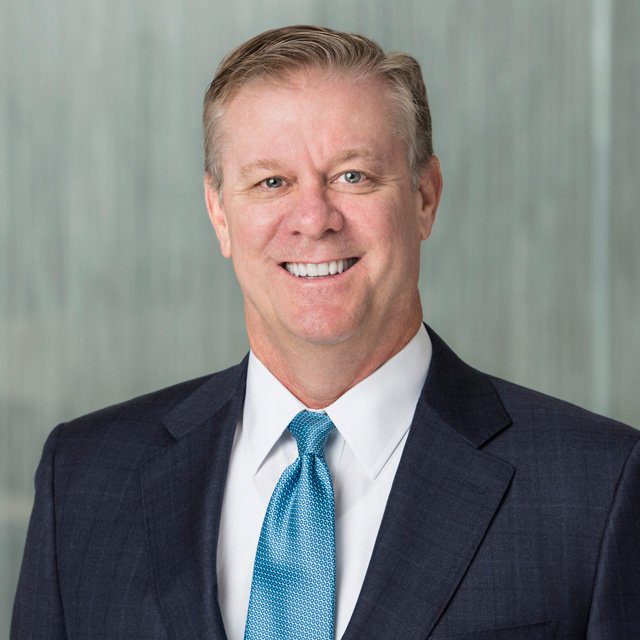Ultra-Wealthy Clients Are Sitting on Cash, Ready to Invest

The fastest-growing client segment at UBS in the United States has been “heavier in cash than they’ve been historically,” John Mathews, head of Private Wealth Management, tells ThinkAdvisor in an interview.
That segment is ultra-high net worth clients, made up of multimillionaires with $100 million and up and billionaires.
Their decision to put aside lots of cash is “about being in a position to take advantage of moves in the markets. [Indeed], activity over the last few months has really picked up because of what [these investors] think are opportunities [brought by] the market sell-off or even rising interest rates,” Mathews says.
Hence, last week — the stock market’s worst in three months — didn’t particularly faze UBS’ UHNW clients. They were poised to “take advantage” of such “market dislocations,” managing director Mathews says.
He has led the division, with 600-plus private wealth advisors, since 2013. Starting out at E.F. Hutton, in 1994 he joined PaineWebber, which was later acquired by UBS.
In the interview, Mathews, 57, discusses UBS’ UHNW clients’ “insatiable demand” for alternative investments: “To them, it’s outsized returns without the day-to-day volatility that’s in the market,” he notes.
Mathews also explores what sorts of investments family offices are seeking. Their growth is “exponential,” up from “3,000 about seven years ago” to more than “13,500” in the U.S. now, he says.
ThinkAdvisor interviewed Mathews, based in New York, on Monday. He was speaking by phone from Palm Beach, Florida.
The conversation includes UHNW clients’ interest in ESG investing and family offices that have “dabbled” in crypto, but not through UBS: The bank has no crypto platform.
UBS serves numerous families of the 34,500 in the U.S. with a net worth of more than $100 million and “a very high percentage” of the 975 billionaires in the nation and around the world, according to Mathews.
The firm manages $1.7 trillion in the U.S., and the UHNW segment is “a very large portion” of that, he notes, but reveals no specific AUM.
Here are highlights of our interview:
THINKADVISOR: What are ultra-high-net-worth clients most concerned about today?
JOHN MATHEWS: Before the pandemic, what was on their minds was “Let’s make money in the markets.” During the pandemic, the focus went from investments to making sure their life was in order — their trust and estate, succession planning [and so on].
But in 2022, they flipped back to focusing on “Do I have the right investments in place?”
Did they get upset last week when the market plummeted?
No. They’re very opportunistic investors. So when there’s a dislocation in the markets, the ultra-high-net-worth investors [multimillionaires and billionaires] are usually taking advantage of those big moves.
Our UHNW clients have kept a large portion [of their assets] in cash. Most UHNW investors have been heavier in cash than they’ve been historically. That gives them a chance to take advantage of market dislocations.
What’s that specific strategy?
I think it’s a new time now where these clients will keep cash on the sidelines to be able to deploy it [in a market downturn] when they think there are opportunities.
Usually it’s not broad-based like “Let’s invest it in the S&P.” It’s “Let’s be very specific in what we think will work.” It could be private equity or a hedge fund.
Activity over the last few months has really picked up with our clients because of what they think are opportunities [brought by] the market sell-off or even rising interest rates.
We’re seeing clients now saying, “Fixed income is actually attractive.”
How much emphasis do UHNW clients put on corporate earnings?
A minority is very involved, including some family offices. But the others have a plan in place and don’t worry about the day-to-day fluctuations and earnings reports that are talked about on TV.
They’ve created a portfolio that’s durable; if [a corporation] has bad earnings, it creates an opportunity. They have the liquidity to take advantage of it.
Have alternative investments become more important to the UHNW?
Yes. It’s alternatives, alternatives, alternatives. Our clients have an insatiable demand for them across the entire spectrum, from private equity to hedge funds.
They’re comfortable with the liquidity premium of a private equity fund. They understand it’s nine- or 10-year money, but they’re comfortable with the potential outsize returns that go with that.
Many have built their wealth in private equity to some extent: They own their own business, for example. So to them, it’s outsize returns without the day-to-day volatility that’s in the market.
Our average client’s alternative [investment] balances continue to grow every year and even more so this year.
Do the UHNW invest in crypto?
Not through us, because we don’t have a crypto platform, though I’ve noticed that, especially in the family office space, many have dabbled in crypto mainly because they don’t want to be left behind potentially, I guess. But they’re skeptical as well.
So why do family offices bother to invest in it?
It’s their job to make sure they diversify the wealth of the family, and they view crypto as potentially the next thing — and they don’t want to miss out.
They have some sort of allocation, but usually not that large. They have enough wealth where they can diversify into it — and if they’re wrong, they’re wrong. It’s not that big a deal.
To what extent are family offices growing?
Exponentially. It’s accelerated growth. It’s estimated that there are over 13,500 family offices in the U.S. today, up from 3,000 about seven years ago.
There’s massive growth in both the single-family office and the multi-family office. They’re looking for bespoke one-off types of investments. They’re heavy in private equity, primarily in direct participation of purchasing businesses.
In working with our family offices, half the discussions are on investment opportunities; the other half is on trust, estate, philanthropy, succession planning and educational programs for family members.
Do UHNW clients do retirement planning?




